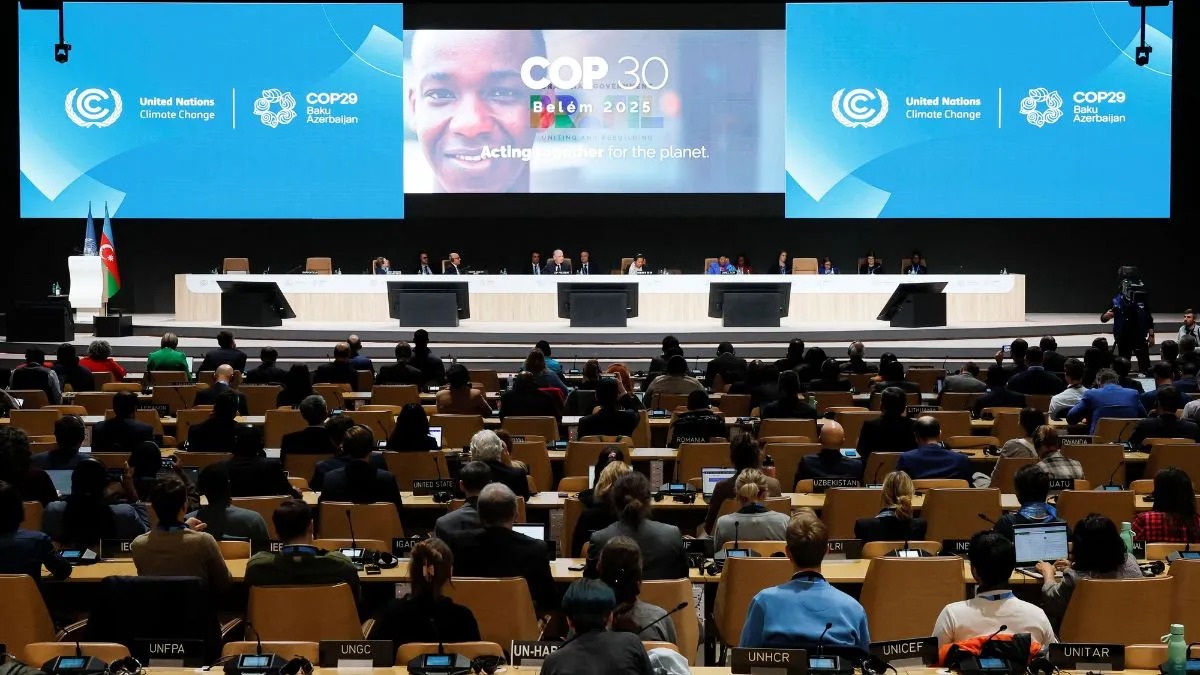

Baku (Azerbaijan): This time India did not let any country dominate the United Nations Climate Conference going on in Baku, the capital of Azerbaijan. India on Sunday rejected the climate finance package for the ‘Global South’, which aims to provide only 300 billion US dollars annually to achieve the target by 2035. India called it “too little and far-fetched”. India said that the figure of 300 billion US dollars of financial assistance for the Global South is much less than the 1.3 trillion US dollars that the ‘Global South’ countries have been demanding for the last three years to deal with climate change. This opposition of India has further increased the respect of Prime Minister Narendra Modi in the Global South.
Let us tell you that India is now recognized as the voice of the Global South. Hence, India did not allow injustice to happen to the Global South. When India alone showed the courage to openly oppose this decision, the whole world was stunned to see its courage. ‘Global South’ refers to the weak or developing countries of the world. Chandni Raina, advisor to the Department of Economic Affairs, while stating on behalf of India, said that they were not allowed to present their views before adopting the agreement, due to which their confidence in the process has decreased. She said, “This is a repetition of many incidents like not following inclusiveness, not respecting the stance of countries.
What did India say?
We had informed the chairman, and we had informed the secretariat that we wanted to make a statement before taking any decision, but everyone saw how it was all done in advance. We are extremely disappointed. “This target is very small and very far-fetched,” Raina said. He stressed that it has been set for 2035, which is very far away. “Estimates show that we will need at least 1.3 trillion US dollars per year by 2030,” Raina said. “300 billion US dollars is not in line with the needs and priorities of developing countries. It is not in line with CBDR (common but differentiated responsibility) and the principle of equity,” he said.
Applause started for India.
During this, the Indian negotiator got strong support in the room full of diplomats, civil society members, and journalists. There was applause for India on the world stage. Raina said, “We are very unhappy and disappointed with this process and object to the adoption of this agenda.” Nigeria supported India and said that the US $ 300 billion climate finance package is a “joke”. Malawi and Bolivia also supported India. Raina said that the results reflect the reluctance of developed countries to fulfill their responsibilities. He said that developing countries are being affected the most by climate change and they are being forced to adopt low carbon emission means even at the cost of their development. They are also facing unilateral steps like the carbon border adjustment mechanism adopted by developed countries.
India rejected the proposal.
Raina said the proposed outcome would further impact the ability of developing countries to adapt to climate change and would have a huge impact on their climate goal ambitions and development. He said, “India does not accept this proposal in its current form.” This new climate finance package or new collective quantified target (NCQG) for developing countries will replace the target of US $ 100 billion set in 2009. The report released after the negotiations on the agreement said that countries will achieve the target of providing a total of US $ 300 billion per year from various sources – public and private, bilateral and multilateral, and alternative sources by 2035. The document has a figure of US $ 1.3 trillion but it calls on “all actors”, including public and private, to “work together” to reach this level by 2035. It does not put the responsibility only on developed countries.
Read More: The Looming Shadow of War How Iran, Israel, and the US are Navigating a Dangerous Week

 Share
Share



